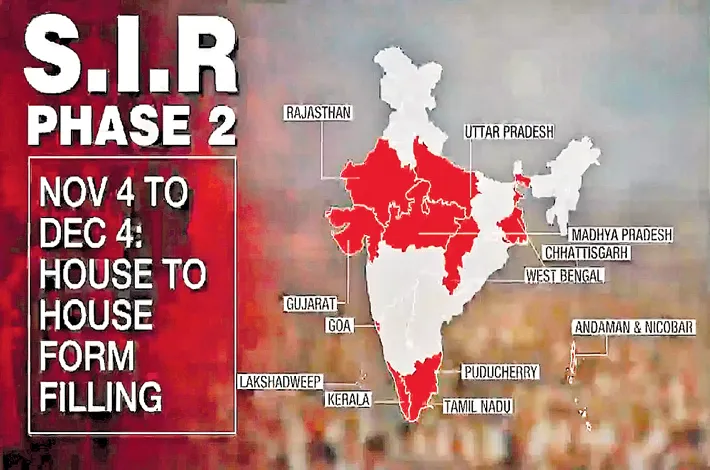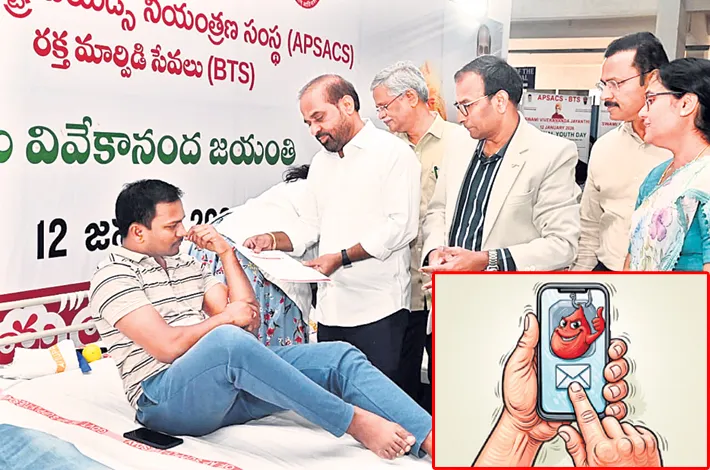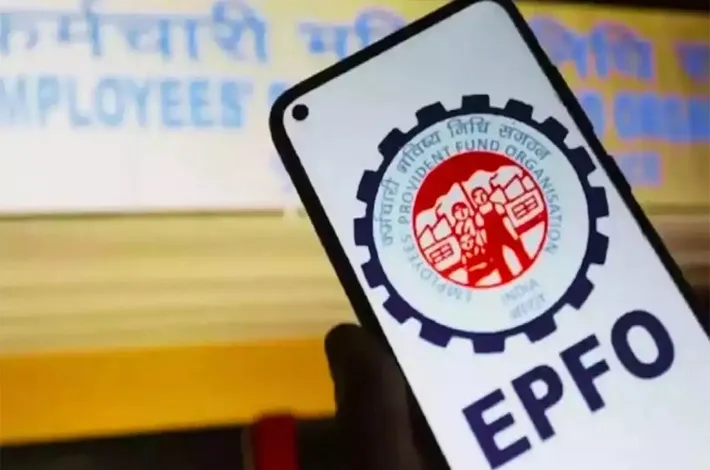Congress Collapse ?
20-11-2025 12:00:00 AM

metro india news I hyderabad
The National Democratic Alliance's devastating sweep in the November 2025 Bihar Assembly elections – securing over 202 of 243 seats – represents more than another electoral victory for the BJP-led coalition. This landslide exposes the near-total collapse of the Congress party's ground-level machinery, a weakness that proved fatal during the preceding Special Intensive Revision (SIR) of electoral rolls.
While the NDA romped home with a strike rate exceeding 90 percent, the Congress was reduced to a humiliating six seats out of 61 contested – its worst performance in Bihar history. Rahul Gandhi himself described the verdict as "shocking" and "unbelievable. The truth lies deeper than EVM controversies or caste arithmetic. The Congress simply ceased to exist as a fighting force on the ground.
The Special Intensive Revision in Bihar, completed with the final electoral roll published on 30 September 2025, provided the perfect laboratory to test party organizations. The Election Commission distributed enumeration forms to every household, requiring voters to verify and update details in a process far more intrusive than routine summary revisions.
Opposition parties immediately smelled a rat: lakhs of names, particularly from Muslim, Dalit, and extremely backward caste localities, were marked for deletion on flimsy grounds – shifted, dead, duplicate, or simply "untraceable". The timing, months before the assembly polls, convinced many that the exercise served to prune anti-NDA votes in marginal constituencies.
Regional parties responded with ferocious organizational energy. In the Seemanchal region, AIMIM workers fanned out booth by booth, filling forms for voters, accompanying them to Block offices, and challenging deletions with documentary proof. The result showed in the votes: despite the overall NDA tsunami, AIMIM retained influence in pockets where its cadre remained active on the ground.
Similar stories emerged from other states entering SIR Phase-II. TMC workers in West Bengal turned the revision into a mass contact programme, with MLAs and panchayat members personally monitoring Block visits. DMK cadres in Tamil Nadu began preparations months in advance, creating WhatsApp groups for every polling booth to track form distribution and submission. These parties treated the SIR not merely as an administrative hurdle but as an existential electoral battle.
The Congress, in stark contrast, was missing in action
In June 2025, the Election Commission of India (ECI) initiated a Special Intensive Revision (SIR) of Bihar's electoral rolls ahead of the 2025 Assembly elections, requiring voters to resubmit forms with 11 specific documents for verification, initially excluding Aadhaar and ration cards. This led to the draft rolls of August 1, 2025, omitting approximately 65 lakh voters—about 10% of Bihar's electorate—citing reasons like death (22 lakh) and migration (35 lakh). Critics, including opposition parties, alleged arbitrary disenfranchisement targeting vulnerable and migrant groups, potentially skewing elections in favor of the ruling NDA.
The Association for Democratic Reforms (ADR), along with PUCL and activists, filed Writ Petition (Civil) No. 640/2025 in the Supreme Court, challenging the SIR's legality under Articles 14, 19, 21, 325, and 326. ADR argued it violated due process, lacked legal basis for mass deletions without notices, and undermined democracy by excluding common IDs, mirroring Citizenship Act flaws.
A bench of Justices Surya Kant and Joymalya Bagchi heard arguments over August 12-14, Key directives included: publishing a searchable, district- and booth-wise list of omitted voters by August 19, with deletion reasons, displayed at local offices and publicized widely in simple language; accepting Aadhaar, EPIC, and 11 documents for re-inclusion claims (online/offline); and mandating political parties to assist via booth agents.
An interim July 10 order expanded acceptable IDs. ECI affirmed no removals without notice. Instead of taking advantage and opportunity of the situation, the Congress only organised protests but di nothing to rectify the voters list at the booth level.
Ground reports from Kishanganj, Katihar, Araria, Darbhanga, and Sitamarhi painted the same picture: Congress booths remained unmanned, district offices locked, and senior leaders unreachable. Party workers, where they still existed, complained that no directives came from the state or central leadership about the SIR. No training camps occurred. No helplines operated.
No coordination happened with RJD allies at the booth level. In numerous Mahagathbandhan-stronghold villages, Block officials went door-to-door unaccompanied by any Congress representative, allowing deletions to proceed unchallenged. One blocl-level Congress functionary in Purnea told reporters: "Hum toh sirf poster lagate hain election ke time. Baaki saal koi milne nahi aata." (We only put up posters during elections. No one comes to meet us the rest of the year.)
This organizational vacuum proves catastrophic when elections turn hyper-marginal. The NDA's victory margin in dozens of seats ranged between 2,000 and 8,000 votes – precisely the numbers that disappear when thousands of genuine voters find their names missing on polling day or during revision. The Congress effectively gifted these votes to its opponents through sheer absence.
The Bihar merely represents the most recent and brutal manifestation of a decade-long decay. The party that once boasted the country's most extensive booth-level network now struggles to field credible candidates in panchayat elections across large swathes of Hindi heartland states.
The Congress leadership cannot plead ignorance. Multiple internal reports – from A.K. Antony in 2014 to the recent Ahmedabad AICC session resolutions – diagnosed organizational weakness as the primary malaise. Promises of revival surface periodically: panna pramukhs, booth-level committees, membership drives. Implementation remains negligible. The party's Bihar disaster occurred despite contesting as part of the Mahagathbandhan, with a supposedly revitalized Rahul Gandhi leading the national campaign. If the Congress cannot protect its own voters in a state where it forms the main opposition alliance, its claims of fighting for marginalized communities ring hollow.
Rebuilding demands ruthless prioritization. The leadership must decentralize power, hold internal elections immediately, invest resources in full-time workers rather than star campaigners, and create a parallel ideological training structure that can compete with the RSS. Most crucially, someone at the top must make organizational revival the singular focus for the next four years, subordinating everything else – including Lok Sabha yatras and parliamentary theatrics – to this goal. Until that happens, the Congress will continue to gift elections to its opponents, one deleted voter list at a time.








